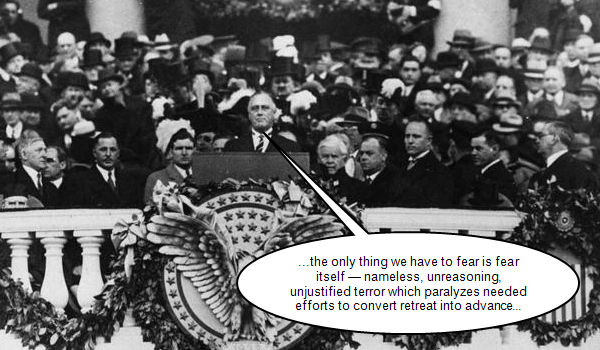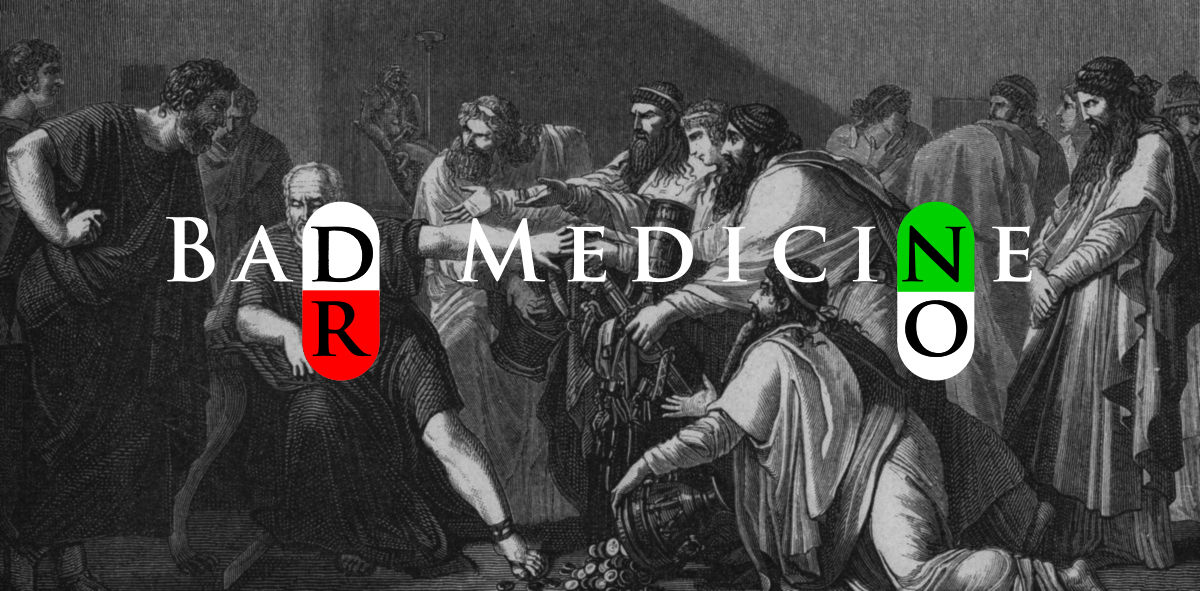A Sense of Fear

Putting aside the leery banality of the Nick Robinson interview, the next greatest threat to public service reporting is the sense–of paradigm. Pioneered by the Welsh Windbag known for the time being in this parish as Hoo Wedwards, BBC news anchors no longer ask correspondents in the field, ‘what’s happening?’ Instead, they direct the correspondent to ‘give us your sense of what’s happening, as you see it.’ Intended to make the news sound more direct and personal, the effect is instead one of serial dilution, until there is nothing of substance left, as in a homeopathic remedy.
Verbal superfluity is nothing new (an ongoing superfluity situation). Sports commentators, as Clive James noticed decades ago, are particularly vulnerable, as in ‘this the team that’ rather than ‘the team’. So too are weather forecasters, as they give us their sense of the weather situation as they see it, in prose larded with superfluity. Today’s forecasters’ lardon de choix is event, as in a snow event. The snow event is of course the direct successor to the freezing fog situation, a superfluity event first noted by James back in January 1979, when he gave us his sense of this, the then situation situation, as it was even back then.
As James pointed out, there is no such thing as a freezing fog situation. It follows that there is no such thing as a snow event, nor any such thing as a sense of the snow event. But, in the exceptions that prove the rule, there are some things where the sense of the thing can matter as much as, perhaps even matter more than, the thing itself. These things are the noxious emotions, emotions such as apprehension and fear. A sense of fear can be more potent than fear alone because the sense of has the effect of multiplying the baseline fear, and left unchecked this can run away to its apotheosis, the fear of fear itself.
Governments tend to the view that the people are thick, and so, by and large, can only handle one binary instruction, delivered to the population as a whole, at a time. So, ‘Stay Safe’. In an emergency this can be extended to a double, or even if necessary, a triple decker, as in ‘Stay home, Protect the NHS, Save lives’. Of itself, this triple decker is plain, even mundane — stay home. It gets its potency from the unsaid subtext: if you don’t, people will die. It works by generating a sense of fear, which soon becomes personal. If people will die, then I, or my family and friends, might die.
The use of fear in public health campaigns is controversial. It is loved on the whole by politicians because, the way they see it, it is simple but effective, like an atomic bomb. Dictators in particular relish fear, because a sustained sense of fear in the masses is the engine of mass obedience. It is also widely liked by public health physicians, as it offers a chance to get back at the punters who as a rule tend to ignore blander public health admonishments.
But there are also situations where the use of fear can be problematic, and even backfire. The medical literature is strewn with examples, from moral dubiousness to pragmatic ineffectiveness. But there is one particular problem which may apply to the use of fear as the engine of the covid lockdown obedience: this particular sense of fear, it seems, is sticky. Once internalised, it stays put, even after the lockdown is — so far only hypothetically — lifted.
Yesterday’s publication by Ipsos Mori of their “Attitudes to lockdown, impact and consequences” survey reveals that almost two thirds — 61% — of respondents are either ‘not very’ or ‘not at all’ comfortable about using public transport or venturing out to bars and restaurants once the lockdown has ended. Of those with children under 17 years old, almost half are either ‘not very’ or ‘not at all’ comfortable about sending their kids back to school. Of those in employment, only half say they are ‘fairly’ or ‘very’ comfortable about returning to work.
If the poll is right, and of course it may not be , or it may be now, but attitudes may change over time, then it means in several key areas — work, travel, education and socialising — at least half of the population will be tempted to remain in voluntary lockdown. The sense of fear will trump common sense. Neither ‘normal’ life, nor the economy, will bounce back; instead, both will remain in a government triggered and then self maintained coma. Like ‘stay safe’, state and then self imposed lockdown is a manifestation of safetyism, the cult that worships ‘being safe’ above all else. Like all cults, it is narrow-minded, and can very easily become dangerous. If we must have a mantra, then Dr No suggests we should ditch the patronising and paralysing ‘stay safe’, and replace it with something more intelligent, like ‘be prudent’. Fat chance. Or, as the BBC would report it today, there is a sense that there is little chance of that happening any time soon.

The events of 9/11 were pivotal, in the respect that modern day governments realised that they could control its people by fear. All in the name (much like now with Covid 19) of offering (false) protection and security. Liberties and freedoms are all too easily given up with very little real justification, other than its needed for your safety.
Are we heading towards what actor Ned Beatty in the film Network (1976) a ‘Perfect World’? “All necessities provided, all anxieties tranquillised…”
View the powerful and prophetic scene here: https://www.youtube.com/watch?v=V9XeyBd_IuA
Yes, James Robinson. You nailed it.
And I’m as mad as hell!
And to complete Peter Finch’s (as anchorman Howard Beale) famous line: “…and I’m not going to take it anymore!”.
Although Linda, it seems other than a few murmurings we are taking it, and seemingly will continue to do so, indefinitely, perhaps?
**Noted today, that at least five states in the US are objecting to the lock down and have appeared to overcome their fear!
Yep, James!
I like the trim of your jib. Hope to meet up on the water one day …!
CUT of your jib!
Spent (apparently) all last night searching for my car in the (demolished) Tricorn CP in Portsmouth.
Very tired!
Sleep well.